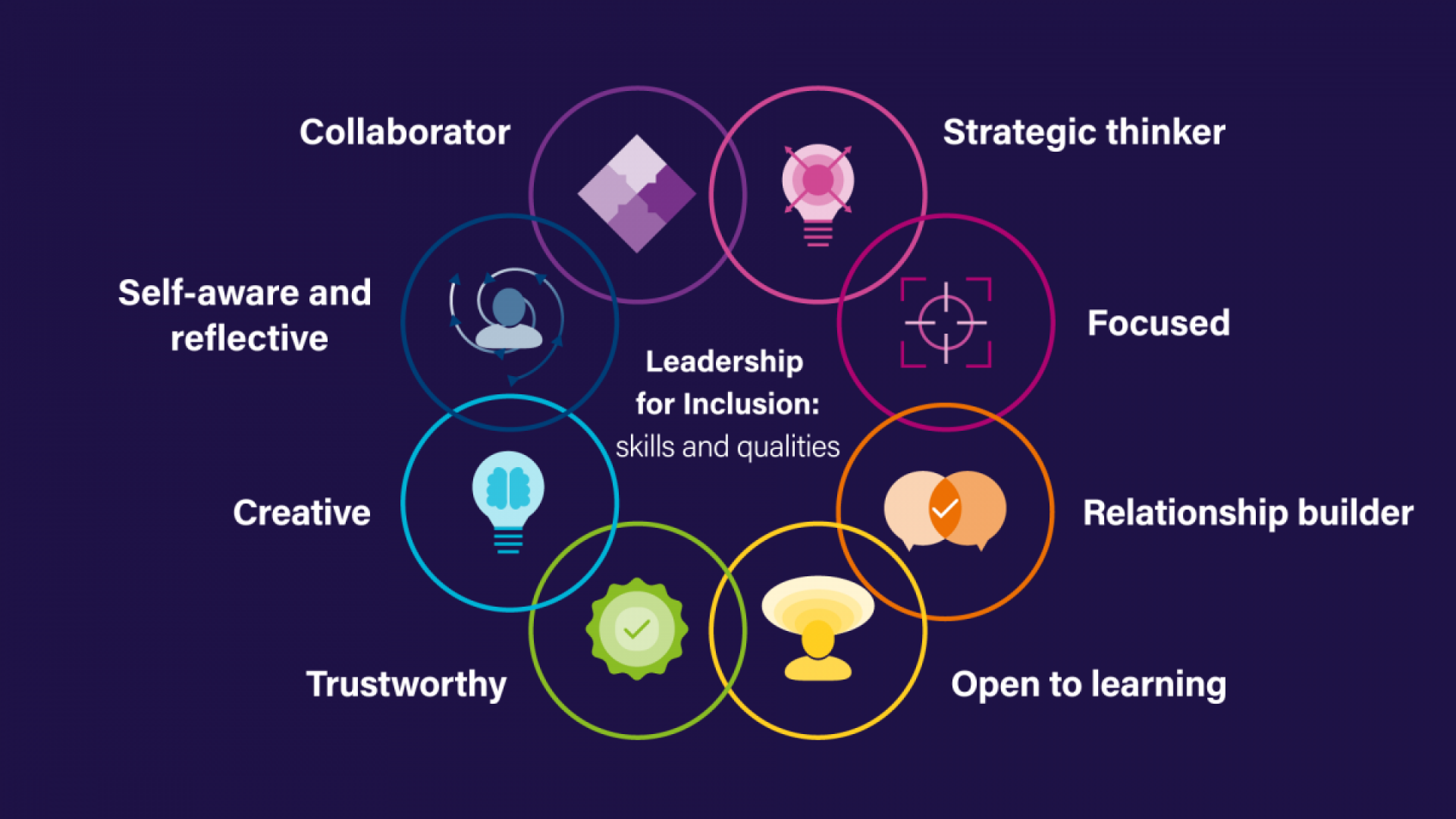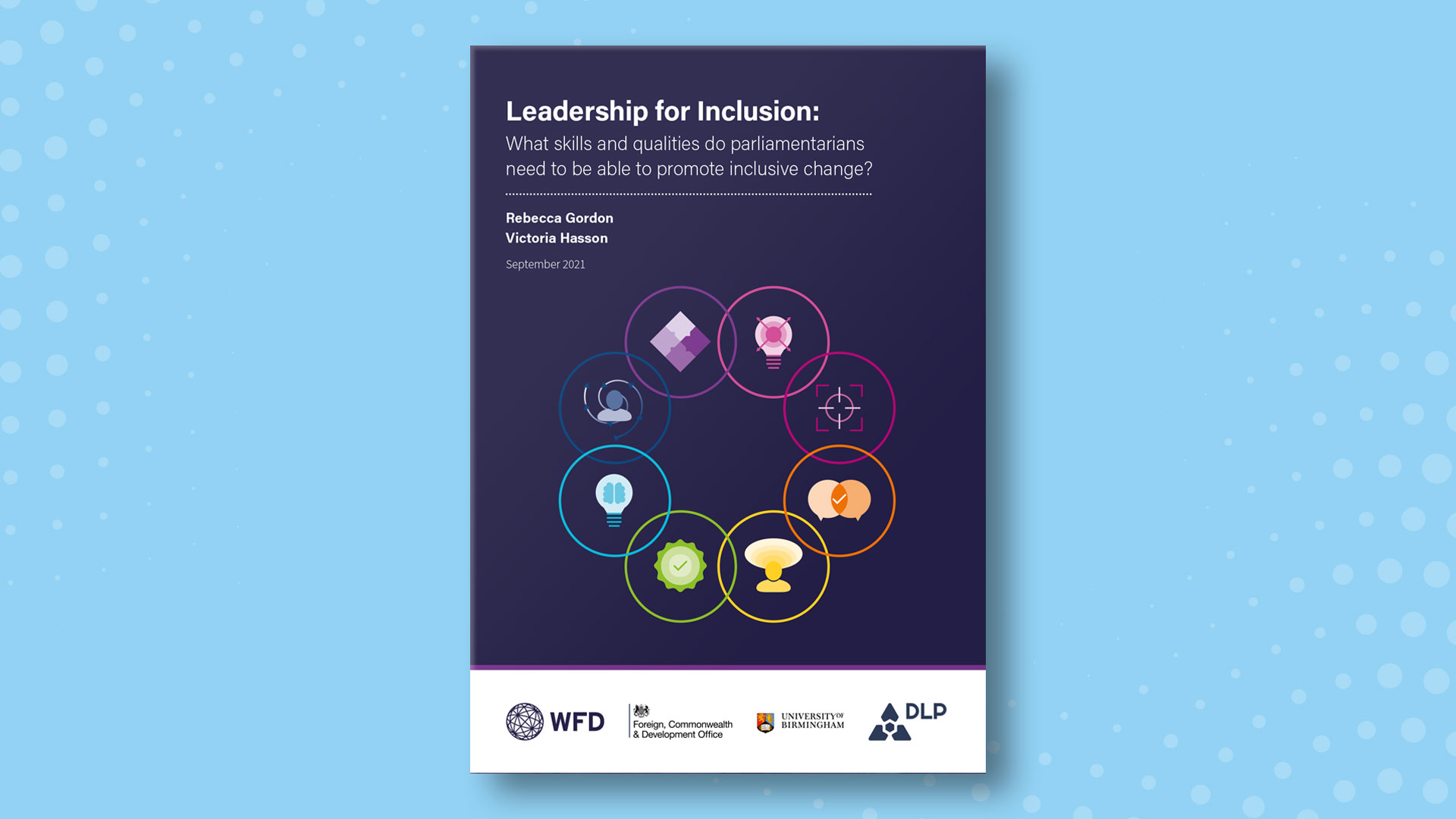What skills and qualities do parliamentarians need to be able to promote inclusive change? WFD’s new research by Dr Victoria Hasson and Dr Rebecca Gordon identified five key skills and three qualities which are utilised by parliamentarians to support legislation and policy which has explicitly recognised, measured and planned for the specific needs of, or impacts on, marginalised groups, and improves and/or secures the rights for these groups.
Executive Summary
Strong democracies need legislation and policies which recognise, measure and plan for the specific needs of, and impacts on, all citizens. In particular for people who have been, and are minoritised and marginalised, legislation and policy are needed that improves and secures their rights. However, political leadership is essential for inclusive legislative change to be successfully realised. We define inclusive legislative change as legislation and policy which has explicitly recognised, measured and planned for the specific needs of, or impacts on marginalised groups, and improves and/or secures the rights for these groups. Whilst the scope of inclusive legislation is broad, in this report we look at gender, LGBTQ+ and disability related legislation and rights. Research has demonstrated the structural barriers to progress for inclusive change at the institutional level (e.g., evidence, resources, etc). However, there is far less evidence on the skills and qualities that political leaders utilise to support inclusive legislative change, particularly at the parliamentary level.
The skills and qualities MPs use to support inclusive change
Through thirty-one interviews with parliamentarians and former parliamentarians and twenty supplementary interviews with civil society actors and academics who were involved in six case studies of successful inclusive legislation, our research identified five key skills and three qualities which are utilised by parliamentarians to support inclusive legislative change. It is important to differentiate between skills and qualities, as whilst skills can be learned and developed, qualities are more difficult to cultivate, and so recommendations for parliamentarians may differ as a result.
The first five we categorise as essential, having been mentioned in two thirds of the interviews:
- Collaborator – The ability to collaborate across political ideologies and boundaries. Recognise the shared responsibility for inclusive legislative change to ensure that legislation gets enough votes to succeed.
- Strategic thinker – Being knowledgeable about the institutional and societal barriers to legislation. Carefully plans how to overcome these utilising and unifying the contributions of a wide range of stakeholders. Having a political mindset to frame the legislation in response to potential opposition.
- Focused – Maintaining commitment and conviction to translate motivation and vision into legislative change. Demonstrating determination and patience when the legislative process is lengthy and complex.
- Relationship builder – Genuinely reaching out to, and working with, affected communities Engaging with empathy to ensure that the legislation developed is appropriate and comprehensive. This process is strengthened by being an active and respectful listener
- Open to learning – Recognising where others’ expertise is needed. Being open to learning from other actors whose knowledge is essential to ensuring the legislation is well designed, and has its intended effect.
The second three are important, but potentially more contextually specific, as they were mentioned in fewer interviews
- Trustworthy – Demonstrating integrity and authenticity which results in trust from communities and other parliamentarians. Being genuine in their intention with the legislation, which gives leaders legitimacy to act on behalf of these groups during the legislative process
- Creative – The ability to make creative use of existing resources or institutional structures to successfully introduce inclusive legislation. Being flexible and adaptive when alternative opportunities are not available.
- Self-aware and reflective – Being committed to thinking critically about their engagement with inclusive legislation. Dedication to their own development as leaders, both as part of legislative processes and beyond.

These key skills and qualities were identified as being vital for parliamentarians’ ability to successfully support inclusive legislative change processes, particularly as introducing inclusive legislation is rarely a straightforward and linear process. This paves the way for organisations seeking to strengthen democratic institutions and processes to supplement institutional and outcome-focused support with a range of individual-level interventions.
Recommendations
Through comparing the experiences of those interviewed it is clear that:
- Most parliamentarians do not receive training to support them to develop the skills they need for legislative work when they enter parliament. Given the complexities involved in the introduction of inclusive legislation, the lack of these skills may create additional challenges during these processes.
- Leaders need opportunities to develop and strengthen skills, which may be through action learning, building coalitions to learn from the experience of those with expertise required to develop meaningful legislation, or mentorship.
- The critical skill of being collaborative is essential for addressing complex, adaptive problems that are likely to arise in inclusive legislative processes.
To address this, we make the case for recognising the influence of the enabling environment, motivations and incentives, as well as encouraging those with the required qualities and skills to enter politics. However, it is also important to support existing political leaders to strengthen their leadership in these areas. Therefore, we recommend a two-pronged approach.
This first strand of action will require engagement with political parties who represent the primary pathway into political leadership in the majority of contexts. However, political parties have also historically been, and continue to create, barriers to inclusive participation in political leadership.
Supporting those with these key skills and qualities to enter political leadership roles
- Prioritise shifts in the wider enabling environment to support the emergence of more leaders with the experience, skills and qualities required to support inclusive change. This requires not only making parliaments more inclusive spaces, but also encompasses addressing the resource disparities in access to leadership and providing mentorship and training.
- Systematic and proactive outreach to encourage people who are likely to have or are able to develop the skills required for inclusive legislative change to enter political leadership roles. This should include targeting those who already have the skills and qualities that are useful for inclusive change, such as civil society leaders and activists. There should also be a concerted effort to engage members of minoritised and marginalised groups, or the ‘prototypical’ stakeholder leaders for inclusive legislative change.
Engagement with existing political leaders
- Contextualised political leadership training – understanding the institutions in which leadership is situated is essential for honing and developing strategic thinking and creativity in relation to inclusive legislative change.
- Peer to peer political skills and experience sharing – the development of a global coalition of parliamentarians interested in promoting inclusive change would provide an opportunity for cross-party international experience sharing to strengthen understanding of how to support inclusive legislative change, whilst fostering collaboration.
- Targeted political leadership resources – there is need for targeted resources and tools to support political leadership development. This will be essential for parliamentarians seeking to develop their skills privately as well as to support specific political leadership training.
- Development and strengthening of key skills and qualities– qualities such as empathy, active listening, self-awareness and creativity need to be given stand-alone focus in work to support parliamentarians internationally to strengthen them.
- Community mentorship – two-way mentorship between communities (such as civil society leaders and activists) and parliamentarians should be developed to ensure the involvement of those with the required expertise and experience. This would strengthen parliamentarians’ understandings of the lived realities of citizens whose lives are affected by proposed legislation and improve its development.


